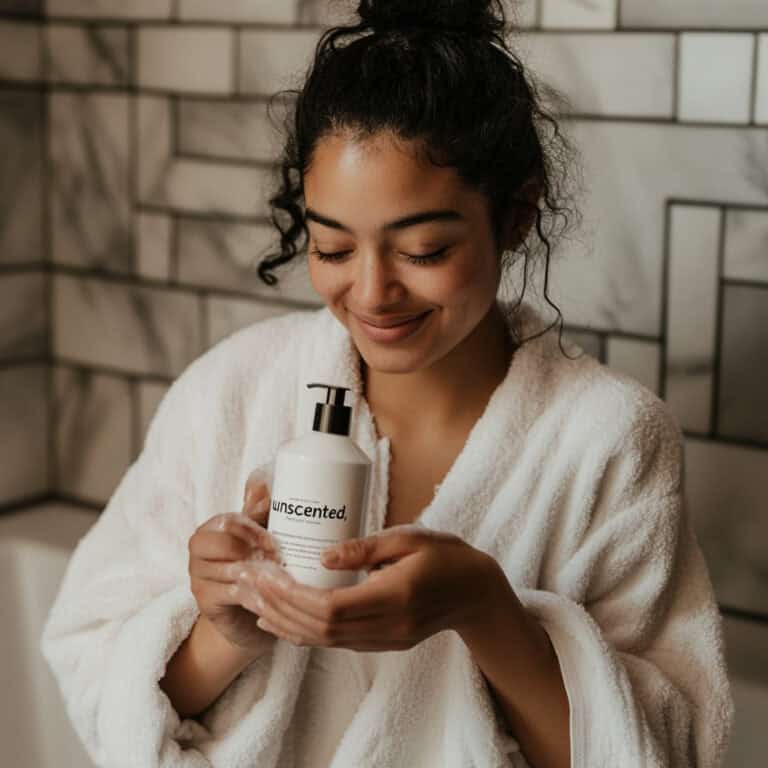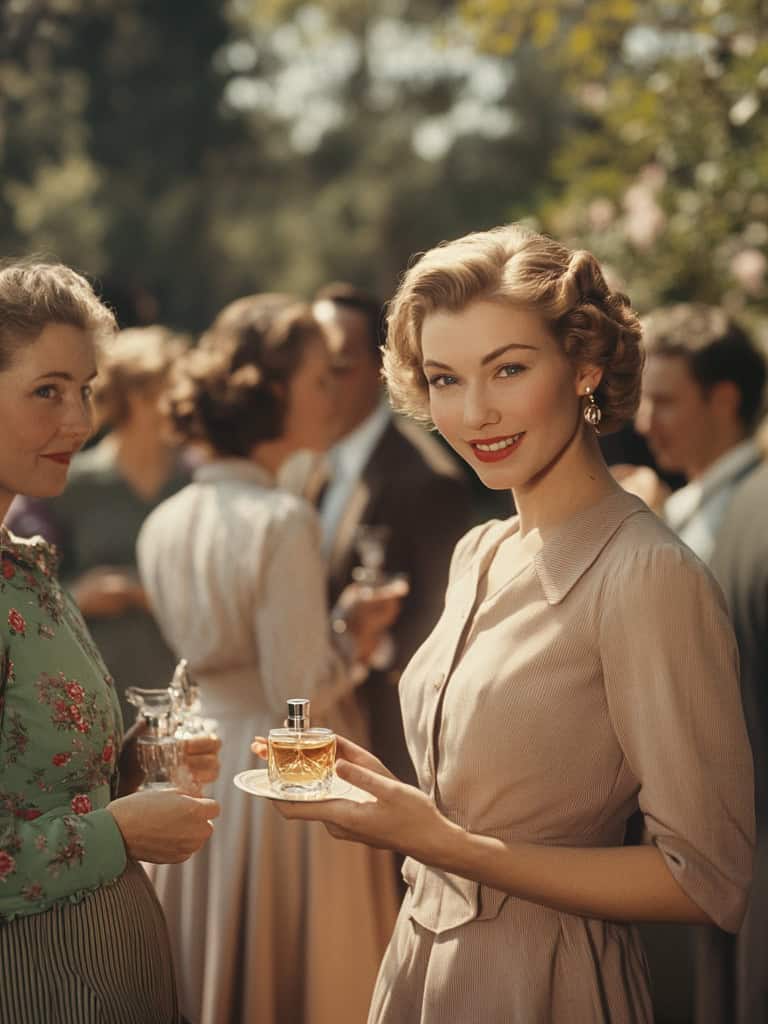Quick takes:
- Scented products can leave a lasting impression on those around you, both positively and negatively.
- Unscented products are often better for environments where scent sensitivity is a concern.
- Finding a balance between personal expression and the comfort of others can make you more considerate in your product choices.
Have you ever wondered how the products you use might be affecting the people around you? Whether you love a soft floral perfume or prefer the crisp neutrality of unscented skincare, your choices leave an impression that goes beyond just you. Let’s dive into the world of scents and discover how to use them thoughtfully, without overwhelming your surroundings.
The power of scent: Making an impression
Scent is one of our most powerful senses—it’s directly linked to memory and emotion. When you use a scented product, like lotion or cologne, you’re creating an aura that people around you can’t help but notice. A well-chosen fragrance can evoke warmth, trust, and even nostalgia, making you more memorable and approachable. However, not everyone has the same preferences or tolerance for fragrances. Sometimes, what smells pleasant to one person might be overpowering or even irritating to another.
Transitions can be key here—let’s explore the advantages and drawbacks of using scented products so you can make informed choices.
Pros and cons of scented products
Pros:
- Self-expression: Choosing a signature scent can feel like wearing a favorite accessory—it’s personal and adds to your style.
- Aromatherapy benefits: Certain scents, like lavender or citrus, can uplift your mood, reduce stress, or bring a sense of calm, benefiting both you and those around you.
- Memorable impressions: People often remember how someone smells—scent can be a powerful connector to positive memories.
Cons:
- Sensitivity concerns: Some people are allergic or sensitive to fragrances. Strong scents can trigger headaches, sneezing, or even asthma, making scented products less ideal for certain social settings.
- Conflicting aromas: In a group setting, multiple people wearing strong fragrances can lead to a clashing of scents, which may make others uncomfortable or create an overwhelming atmosphere.
- Cultural considerations: In some cultures or environments, heavy fragrances are considered inappropriate or distracting.
Now that we’ve weighed the pros and cons, let’s discuss how unscented products can be a great alternative when scent sensitivity matters most.
The case for unscented products

Unscented products are ideal for creating a neutral presence, especially in environments where others’ comfort is paramount—like in workplaces, healthcare settings, or group gatherings. Unscented options are often better for people with allergies or sensitivity to smells. They also help if you want to keep your scent profile simple, especially when layering other scented products like shampoo or laundry detergent.
How to choose what’s right for you
When deciding between scented and unscented products, consider where you’ll be and who you’ll be around. If you’re meeting with people in close quarters, or attending an event with many guests, opting for something subtle or unscented might be best. On a more intimate date or personal gathering, a light, well-chosen scent can add to the ambiance and create a positive, memorable experience.
If you love wearing fragrances but also want to be considerate of others, here are a few tips:
- Test intensity: Before applying, test your fragrance to see if it’s too strong. A gentle spritz is often enough.
- Location matters: Apply scent to pulse points like the wrists or behind the ears, but avoid applying too much, especially on clothing where it may linger.
- Layering: If you’re layering scented products, like body wash, lotion, and perfume, make sure they’re in the same scent family to avoid clashing.
Let’s talk about how to avoid overwhelming others when you love using scented products.
Avoiding the scent overload
If you choose to wear a scent, it’s important to limit yourself to just one. Using multiple scented products—like scented soap, underarm deodorant, perfume, leave-in conditioner, and laundry detergent—can create an overwhelming combination that’s unpleasant for those around you. Even if each product smells nice individually, together they can add up to something that clashes and becomes overpowering.
You are not doing yourself any favors by overwhelming people with a barrage of scents. Instead, you should aim to use scents strategically to evoke the feelings and attractions you want from those around you. Even if you think you’re good at layering scents, you might not be—it’s wise to seek honest feedback from people you trust and make sure they feel comfortable giving you their real opinion.
Being mindful of how scents affect others is an important part of showing respect and consideration. Let’s explore how others might perceive the scents you choose and how to use them best.
Understanding others’ boundaries
It’s also important to recognize that while you might have a positive emotional reaction to certain scents, others might not share that experience. For example, many people enjoy the strong scent of fabric softener coming from the dryer—perhaps it reminds them of a simpler time when their parents were in charge. However, just because you associate a scent with comfort or nostalgia does not mean everyone else feels the same way. We often assume others have similar emotional reactions to scents, but that’s not always true. To be considerate, avoid using only your own emotional response as the gauge for how your scent choices will be received by those around you.
Now, let’s dive into some common and uncommon scent options, their effects, and how you can use them to your best advantage.
Choosing the right scent: Common and uncommon options
Choosing the right scent is about more than just personal preference; it’s about how others might perceive it as well. Here are some common and uncommon scents, along with how they are typically experienced by others and the best ways to use them:
| Scent | Effect on Others | Best Use |
|---|---|---|
| Lavender | Calming, soothing, and associated with relaxation. Lavender is often seen as a comforting scent. | Works well in lotions, pillow sprays, and light perfumes. Overwhelming as a deodorant or in high concentrations. |
| Citrus (lemon, orange, bergamot) | Energizing, uplifting, and refreshing. Citrus scents can evoke a sense of cleanliness and positivity. | Great in colognes, body washes, and hand soaps. Too sharp if overused in perfumes or deodorants. |
| Vanilla | Warm, inviting, and often associated with comfort and coziness. Vanilla is generally well-liked and non-offensive. | Works well in body lotions, light perfumes, or as a subtle note in a blend. Cloying if used too heavily in perfumes or fabric softeners. |
| Sandalwood | Earthy, grounding, and often considered sophisticated. Sandalwood is seen as a more mature and refined scent. | Ideal for colognes and aftershaves. Too intense for deodorants or laundry detergents. |
| Rose | Romantic, classic, and often nostalgic. Rose can evoke feelings of warmth and affection but can also be polarizing. | Best in light perfumes or body oils. Overpowering in deodorants or body sprays. |
| Patchouli | Earthy, musky, and often associated with bohemian or alternative styles. Patchouli can be polarizing, with some finding it comforting and others disliking it. | Works well in perfumes and essential oil blends but should be used sparingly. Overwhelming if used in large amounts. |
| Eucalyptus | Fresh, clean, and invigorating. Often associated with spa-like environments and can be refreshing. | Great in shower gels or bath products but too sharp for perfumes or body sprays. |
| Jasmine | Floral, exotic, and often seen as luxurious. Jasmine can evoke a sense of romance and sophistication. | Works well in perfumes and hair oils. Too heady for everyday lotions or deodorants. |
How to apply cologne and perfume properly
Applying cologne or perfume correctly can make a big difference in how it’s perceived by others. Here are some tips to ensure you get it right:
- Less is more: One of the biggest mistakes people make is overapplying fragrance. A couple of spritzes are usually enough. Aim for two to three sprays at most.
- Apply to pulse points: Pulse points are areas where the blood vessels are closer to the skin, emitting more heat and helping to diffuse the scent. Apply your fragrance to the wrists, behind the ears, and at the base of the throat. These spots will help the scent last longer without being overwhelming.
- Avoid rubbing your wrists together: Many people rub their wrists together after applying perfume, but this can break down the fragrance molecules and alter the scent. Instead, let it dry naturally.
- Spray from a distance: Hold the bottle about 6-8 inches away from your skin when applying. This helps disperse the fragrance more evenly.
- Consider your environment: If you’re going to be in a small, enclosed space or around people with sensitivities, consider using even less fragrance or opting for an unscented product that day.
Striking the balance
Your choice between scented and unscented products ultimately comes down to how you want to express yourself and the environment you’re in. While it’s wonderful to embrace a signature scent, being mindful of others’ boundaries will make you not only smell great but also feel great in social settings.
Take a moment this week to evaluate your products. Are there places where you could be more considerate with your scent choices? Or is there a signature scent you’ve been wanting to try but haven’t? Share your thoughts in the comments below or let us know what your favorite subtle fragrance is!
FAQs about using fragrance wisely
More stuff about smelling awesome from other places…
- 6 Times You Should Never Wear Perfume, According to Experts. In case it wasn’t obvious, these are times you should never wear a special scent.
- Why Perfumes Are Poison for Some People
- Human Sexual Responses Boosted by Bodily Scents. Two human steroidal compounds may help scientists make sense of how bodily scents affect sexual arousal
What about you?
We’d love to hear your experiences! Have you ever had a moment when your scent left a memorable impression—positive or negative? Or do you have a favorite subtle fragrance that you think everyone should know about? Share your stories and recommendations in the comments below! Are there places where you could be more considerate with your scent choices? Or is there a signature scent you’ve been wanting to try but haven’t? Share your thoughts in the comments below or let us know what your favorite subtle fragrance is!


Leave a Reply